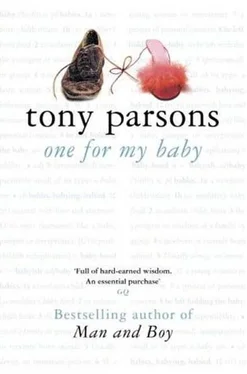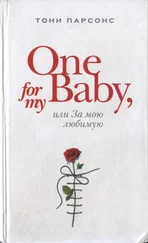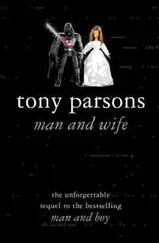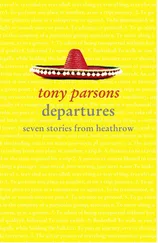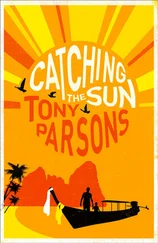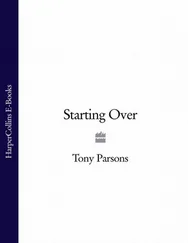Churchill’s feels like a far happier place than either the Princess Diana or the Double Fortune. I can smell instant coffee and takeaway chicken teriyaki. The walls are yellow and peeling, but covered with notice boards and bright with posters. Someone is selling a rice cooker because they are going back home. There are messages in English, French, Italian and what looks like Japanese. Rooms to rent, household items for sale, classes offered and sought-all the bits and pieces of student life everywhere, conducted in every language under the sun.
This place doesn’t have the menace of the Princess Diana or the earnestness of the Double Fortune. It’s a young, bustling, friendly place. I feel so comfortable here that I ask at the reception desk if they have any teaching vacancies. After filling in an application form and waiting for twenty minutes, I am sitting opposite Lisa Smith, the principal. She has dyed red hair, combat boots and a pair of those chunky, vaguely ethnic earrings that look far too heavy for human ear lobes. Despite dressing like one of her students, she must be breathing down the neck of her sixtieth birthday. Her manner is business-like, unsmiling, only as polite as she needs to be. She studies my application form.
“The world needs English,” she says. “Our students will go on to look for jobs in tourism, business, information technology. Wherever they work, they can’t do it without good English. English is the global language. The language of the next century.”
“It’s funny,” I say. “I was in Hong Kong the night it was handed back to the Chinese. Everyone was saying that it was finally the end of empire, the end of colonial rule, the end of the Western century. All that. But the English language is stronger than ever.”
A thin smile from Principal Smith.
“Oh, our students don’t dream of becoming English, Mr. Budd. They harbor no ambitions to become British. They dream of becoming international.”
Becoming international. That sounds good to me. When I went to Hong Kong, my dream was to become a part of something bigger than myself. And I did for a while. I made it. I was bigger than myself. Not because of the bright shining lights but because of a woman.
Rose transformed me. She swapped me for the person I had always wanted to be. Thanks to her, I was on the way to becoming myself. I had even started writing a few small things. Then suddenly it was all over, and everything slipped away from me.
I don’t tell Lisa Smith that teaching has often sickened me. I don’t tell her that I was bored and frustrated teaching the designer-clad old ladies at the Double Fortune, that I was overwhelmed and frightened teaching the designer-clad young thugs at the Princess Diana Comprehensive for Boys.
I am on my best behavior, asking some questions about pay and working conditions, because I feel that I must.
But I already know that I want to be a part of Churchill’s International Language School, I want to be surrounded by people who still have their dreams intact, I long to be a part of all that distant laughter.
J OSH COMES OUT OF THE LIFT just after six o’clock, all blond and beefy inside his pinstripe suit, turning on the charm for some smitten secretary who is gazing up at him while he twinkles and smiles and pretends to be nice. Josh lets the young woman peel away into the home-going crowds before he approaches me, his smile fading.
“You look awful,” he says. “Want a drink? How about a drop of Mother Murphy’s Water?”
“Have they got Tsingtao?”
“No, they haven’t got bloody Tsingtao. It’s an Irish pub, Alfie. They don’t sell Chinese beer in Irish pubs. God, it’s pointless looking for the craic with you. You couldn’t find the crack in your fat ass, could you?”
Josh is my best friend. I often think that he doesn’t like me very much. Sometimes I believe he rues the day that I was born. When we go out for a drink, a large part of the evening is always spent with Josh insulting me, although he no doubt considers this mindless abuse constructive criticism.
As we walk to Mother Murphy’s, Josh informs me that I have wasted my life. He tells me that no woman will ever want me. And when he hears my good news about Churchill’s International Language School, he makes it clear that he disapproves of my new job, just as he disapproved of my old job.
Yet Josh is the closest thing I have to a real friend. We’ve stayed in touch since Hong Kong, when it would have been the easiest thing in the world to drift from each other’s lives, what with him doing so well in the City and me spending most of my time wandering around Chinatown. But we are closer now than we were in Hong Kong.
There are people who have known me far longer and like me far more. People I knew at college, people I used to teach with at the Princess Diana. But none of them are real friends.
It’s not their fault. It’s mine. Somehow I have let them all wander off. I do not return their phone calls. I make lame excuses when I receive their invitations to dinner. I do not make the effort, the endless effort, that you need to keep a friendship alive. These are good people. But the truth is that I just don’t care enough for the continual contact that friendship demands.
I have seen a few of them since coming back to London, for drinks or coffee, and it always seems quietly futile. The only person I really look forward to seeing is Josh. He is my last link to Hong Kong, my one way back to the life I shared with Rose. If I let Josh slip away, then it would really feel as though Hong Kong was over. And I don’t want Hong Kong to be over.
“You were always a tourist,” Josh tells me in an Irish bar full of Englishmen in business suits. “Sentimental about the locals. Gaping at the view. Treating the world like it’s one big Disneyland. Buying little knick-knacks to put on the mantelpiece back home. You and Rose. What a pair of tourists.”
Why did Josh call me up and ask me out for a drink? Why doesn’t he spend his time with other hotshot young lawyers? Because it works both ways. Because I am Josh’s last remaining link to his own happy past.
Josh is working in the City now. Making a lot of money, doing well, soon to be made a partner. He says he doesn’t miss his life in Hong Kong. But I think he secretly yearns for the sense of endless possibility that every expatriate experiences, the feeling that your life has somehow opened up, that you are finally free to become exactly who you want to be. You lose all of that when you come back home. You discover that you are suddenly your old self again.
I think that Josh feels robbed. In Hong Kong he was considered to be what he presents himself as being-a cool, confident son of privilege, educated at schools that cost £15,000 a year, arrogant, to the manor born.
But that’s not the truth. And back in London, some people see right through him.
There was a bit of money in Josh’s distant past. His father was an underwriter at Lloyd’s and for the first ten years of Josh’s life there were private schools, tennis lessons and a big house in the suburbs. But that way of life started to recede when his father had a stroke.
From the age of twelve, Josh went to a comprehensive school in the Home Counties where he was tormented in the playground because he spoke like Prince Charles. His father lost his job. Josh lost his future. And all the insurance policies in the world can’t give you back your future. By the time he became a teenager, all Josh had left was his name, his accent and his act. It’s a good act. It fools me-even now-and many others.
But there are people in Josh’s firm who really did go to Eton and Harrow and Westminster, pampered veterans of Barbados and Gstaad, who come from families where the money never ran out, where the father did not have a stroke at forty.
Читать дальше
